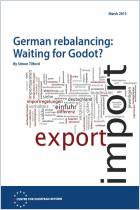
The German Economy
Beyond the Social Market
Read or listen offline
Recommendation
getAbstract.com recommends this excellent, comprehensive and straightforward book, which clearly sets out the author’s diagnosis and prescription for the German economy: reform its approaches to education, social equity, subsidies, trade and more. Horst Siebert traces the roots of Germany’s problems to the student movements of the ’60s with their emphasis on collectivism and hedonism. He provides a detailed, highly readable account of German economic history. He covers the great recovery and prosperity that followed Ludwig Erhard’s reforms of 1948 and the lagging growth that seemed to begin with the oil shocks and recessions of the 1970s and 1980s, but that has roots far deeper than oil. Siebert says that Germany’s problems have no win-win solution. Some interest groups must lose if Germany is to restore economic growth and leave subsequent generations more than the invoice for today’s excesses.
Take-Aways
About the Author
Horst Siebert is President Emeritus of the Kiel Institute for World Economics, and a faculty member at Johns Hopkins University and the Netherlands Institute for Advanced Studies. He previously served as a member of the German government’s Council of Economic Advisors.
















Comment on this summary or Démarrer une discussion